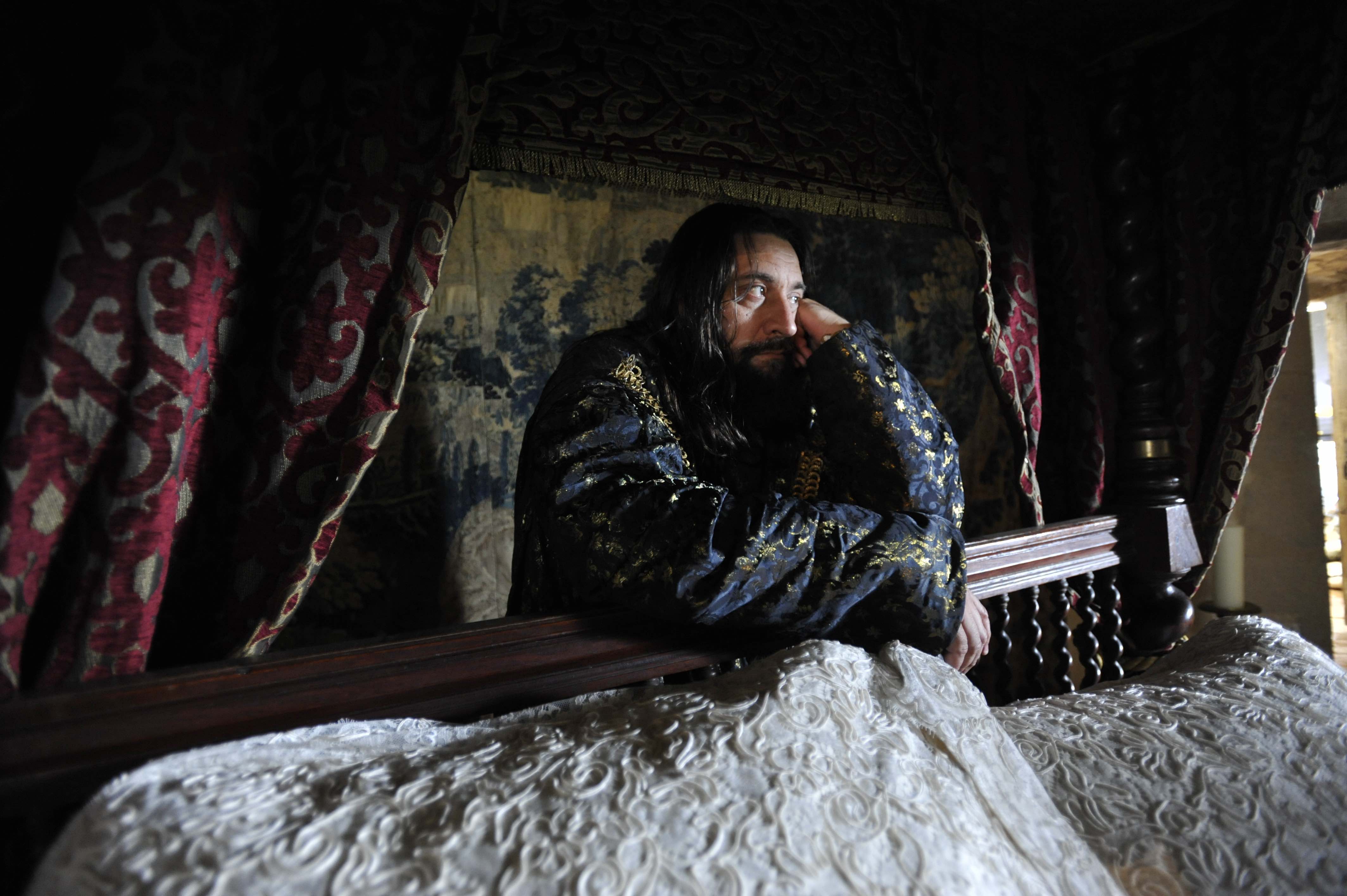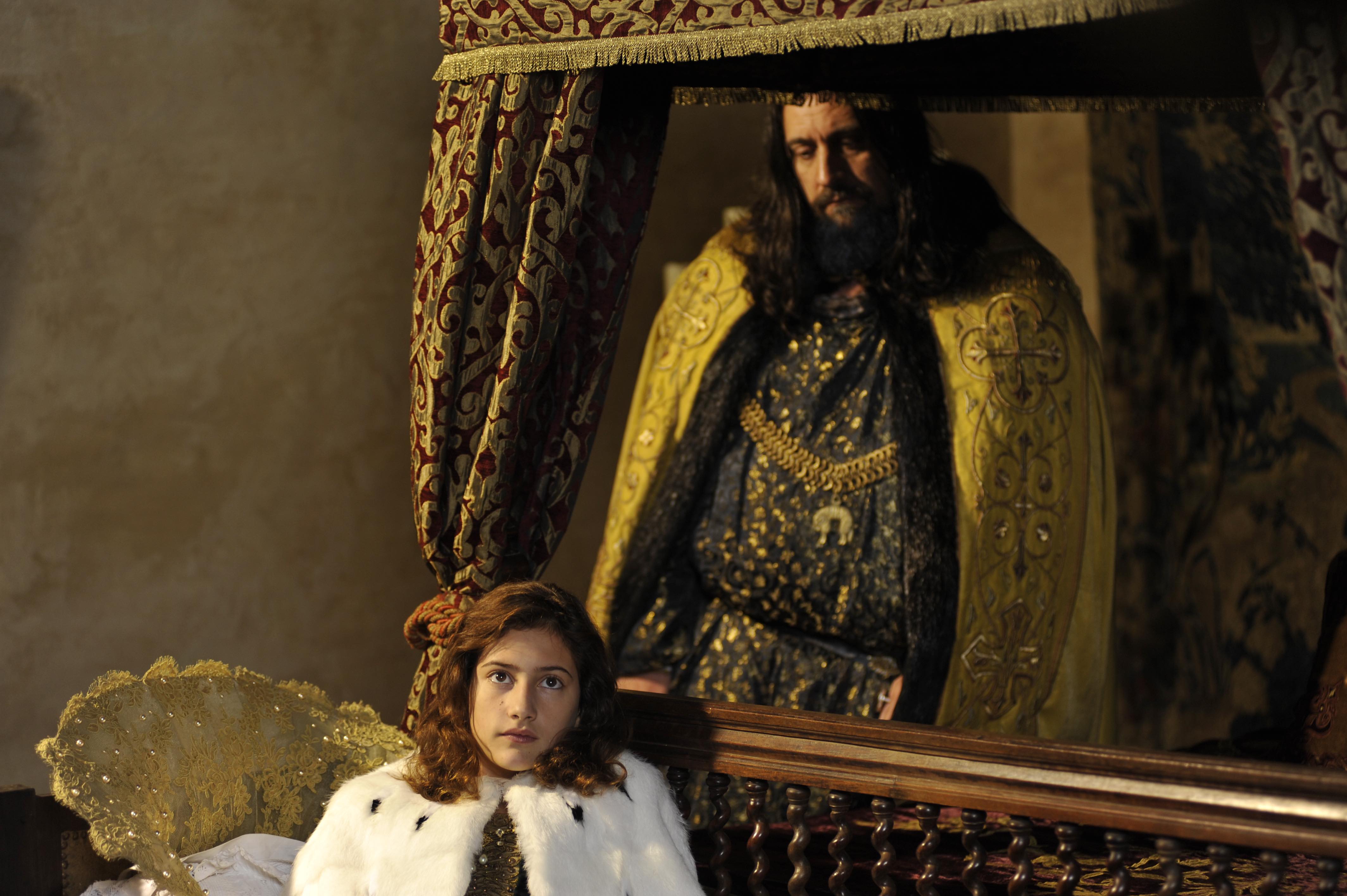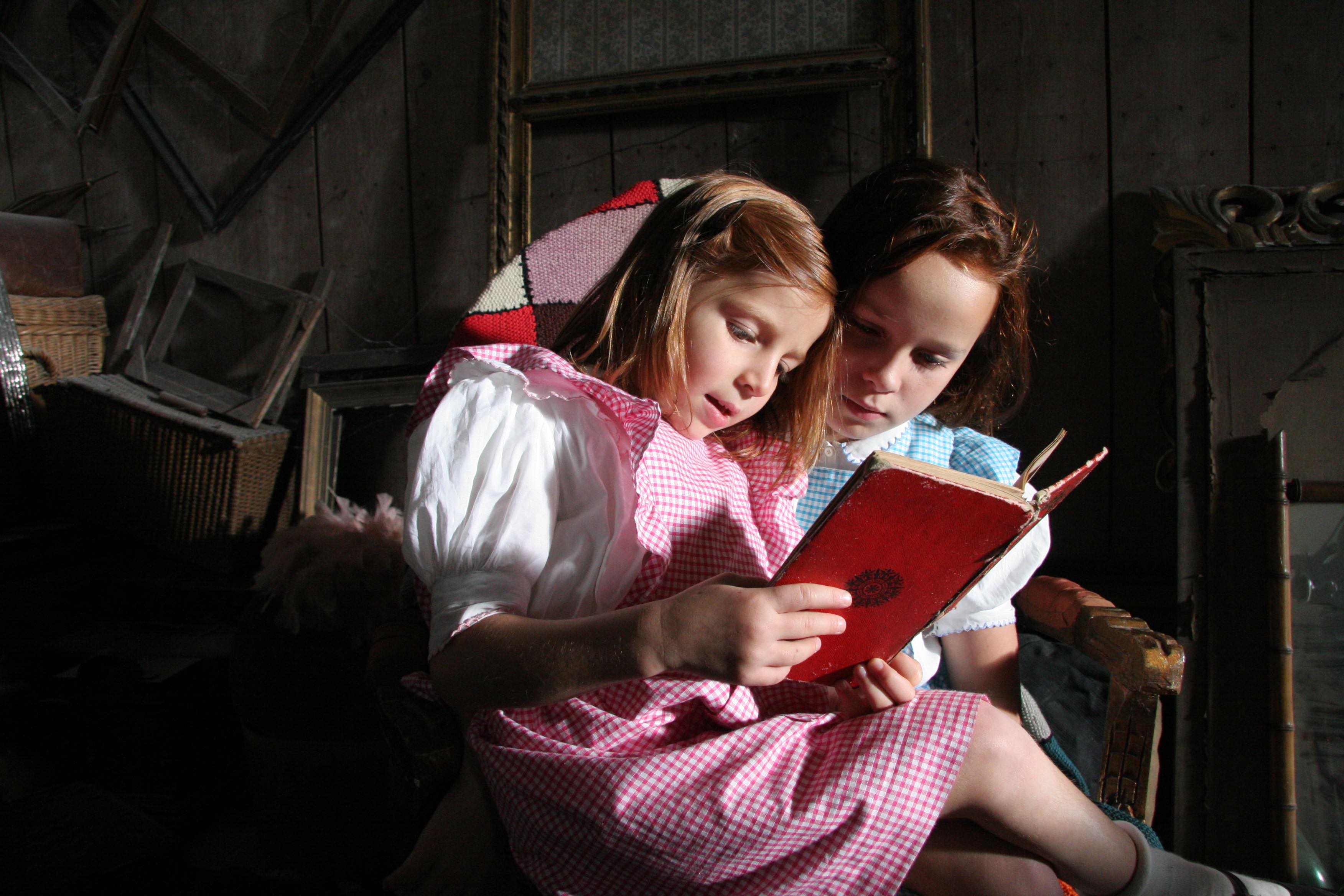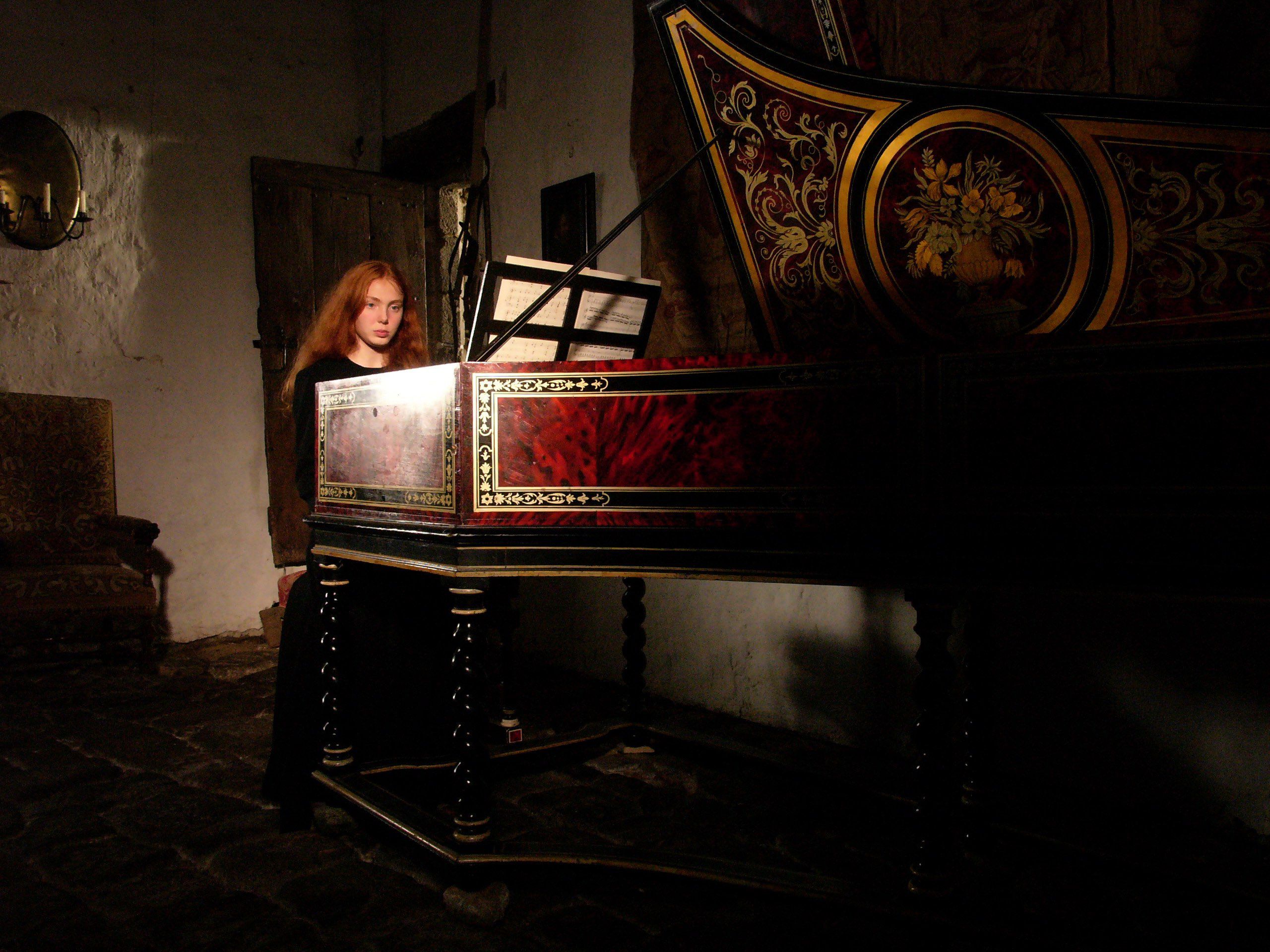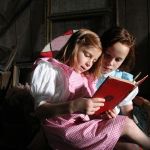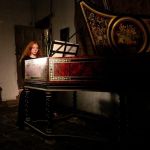REVUE DE PRESSE
False security of Wealth : a tale turns cautionary-768
http://movies.nytimes.com/2010/03/26/movies/26bluebeard.html?ref=movies
Fairy-Tale Endings : Death by Husband-769
http://www.nytimes.com/2010/03/28/movies/28bluebeard.html?ref=movies
After the Wedding Bells Comes the Drama for the Wife of Bluebeard-770
http://www.villagevoice.com/2010-03-24/film/after-the-wedding-bells-comes-the-drama-for-the-wife-of-bluebeard/
Q&A with Bluebeard's Catherine Breillat-771
http://www.villagevoice.com/2010-03-02/film/q-a-with-bluebeard-s-catherine-breillat/
FLACH FILM adapte des contes populaires pour ARTE - Septembre 2009-747
E.T. du 24/09/2009 La société de production de Jean-François Lepetit a produit le Barbe Bleue, de Catherine Breillat. Le film, […]
Barbe Bleue - Arte TV-748
http://www.arte.tv/fr/Berlinale-tous-les-films/2460806.html
Barbe Bleue - Télérama 30/09/09 - Ce délice enfantin de la peur - Samuel Douhaire-749
Barbe Bleue - PREMIÈRE 6/10/09 -Le Barbe Bleue Catherine Breillat fait dialoguer avec un rare éclat mythologie intime et légende populaire - Nathalie Dray-750
BLEUBEARD/BARBE BLEUE- Jonathan Romney - Screen - February 9, 2009
For once, the sexual content in a Catherine Breillat is implicit instead of wildly in-your-face, but otherwise, offbeat fairy-tale venture […]
BLEUBEARD/BARBE BLEUE- Leslie Felperin - Variety - February 09, 2009
(France) A Flach Film, CB Films, Arte France presentation. (International sales: Pyramide Intl., Paris.) Produced by Jean-Francois Lepetit, Sylvette Frydman. […]
False security of Wealth : a tale turns cautionary-768
http://movies.nytimes.com/2010/03/26/movies/26bluebeard.html?ref=movies
Fairy-Tale Endings : Death by Husband-769
http://www.nytimes.com/2010/03/28/movies/28bluebeard.html?ref=movies
After the Wedding Bells Comes the Drama for the Wife of Bluebeard-770
Q&A with Bluebeard's Catherine Breillat-771
http://www.villagevoice.com/2010-03-02/film/q-a-with-bluebeard-s-catherine-breillat/
FLACH FILM adapte des contes populaires pour ARTE - Septembre 2009-747
E.T. du 24/09/2009La société de production de Jean-François Lepetit a produit le Barbe Bleue, de Catherine Breillat. Le film, qui avait été présenté au Festival de Berlin en février dernier, sera diffusé sur Arte le 6 octobre prochain. Dans la foulée de Barbe Bleue, Flach-Film –dont le département télévision est dirigé par Sylvette Frydman- développe une collection de libres adaptations de contes populaires par des réalisateurs de notoriété, pour Arte. Un premier projet est d’ores et déjà en cours d’écriture : La Belle au bois dormant, dont la mise en scène sera assurée par Catherine Breillat.
Le Film Français du 25/09/2009
Flach Film veut revisiter Les contes populaires pour Arte
Alors que Barbe Bleue de Catherine Breillat, présenté avec succès à la dernière Berlinade, sera diffusé sur Arte le mardi 6 octobre, Flach Film développe une collection pour la chaîne franco-allemande portant à l’écran des adaptations libres de contes populaires par différents réalisateurs connus.
Déjà en cours d’écriture, La Belle au bois dormant sera lui aussi réalisé par Catherine Breillat. Le tournage doit commencer début 2010. Pour Jean-François Lepetit, le créateur de Flach Film, « l’idée est d’adapter de façon contemporaine des contes qui résonnent dans l’imaginaire collectif ». Ces films seront, dotés d’un budget d’environ 1,2M€ chacun, aussi bien destinés à la télé (Arte) qu’au cinéma. Ainsi, Barbe Bleue sortira en salle en Angleterre et aux Etats-Unis. Pour la suite, Jean-François Lepetit évoque les noms de Jacques Doillon ou Marina de Van à la mise en scène.
Barbe Bleue - Arte TV-748
Barbe Bleue - PREMIÈRE 6/10/09 -Le Barbe Bleue Catherine Breillat fait dialoguer avec un rare éclat mythologie intime et légende populaire - Nathalie Dray-750

BLEUBEARD/BARBE BLEUE- Jonathan Romney - Screen - February 9, 2009
For once, the sexual content in a Catherine Breillat is implicit instead of wildly in-your-face, but otherwise, offbeat fairy-tale venture Bluebeard (Barbe-Bleue) bears the unmistakable stamp of the veteran French provocatrice. An austere, low-budget video-shot venture, this quietly surreal Freudian fable is an elegant exercise of style with a sly humorous undertow. While revealing no radically new vision, thematically or cinematically, the film is distinctive enough to keep Breillat followers happy, and upmarket niche sales should be healthy while festivals come queuing.
It's no surprise that Breillat would attempt a feminist take on the grisly tale of Bluebeard, which British novelist Angela Carter very much made her own: while there's no explicit sourcing here of Carter's rewrite (in her 1979 collection The Bloody Chamber), it's surely an implicit reference. A parable of male power and female sexual knowledge, Breillat's version of the story is primarily set – judging by the wardrobe – in 16th-century France. It begins with two adolescent girls, Marie-Catherine (Creton) and reputed 'bad seed' younger sister Anne
(Baiwir), being sent home from their convent school when their father dies. There seem few prospects for the newly impoverished girls, until news comes that local baron Barbe-Bleue (Thomas) is looking for a bride. He is reputed to be both ugly and dangerous, but defiant Anne, chosen to marry him, is game for anything and proves an unflappable match for the
hefty, hirsute Bluebeard.
The Bluebeard story itself is followed along traditional lines, while in a parallel thread, the Charles Perrault version of the tale is read, possibly in the present day, by a much younger pair of siblings, Marie-Anne and Catherine (Giovannetti, Lopes-Benites). Part of the fun in this mischievous mirroring lies in the comic gloss that the latter sisters put on the story and on adult sexuality, especially when the young Lopes-Benites, possibly improvising, offers her own bizarre theories about what marriage entails.
The film's great surprise is its austere restraint, the most shocking moment coming when the little Lopes-Benites takes the older Baïwir's place as Barbe-Bleue's bride confronts the charnel-house horrors of his locked room. Another shock comes right at the end, and it is typical of Breillat's mischief that it involves a character we hardly expect to get into trouble.
Using a lively and much younger female cast than usual, Breillat makes a pointed - and one suspects, quasi-autobiographical – comment on girlhood, its dreams and rebellious impulses. Boasting a Depardieu-scale bulk and looming menace, Thomas's ogre-husband is at once baleful and charming.
Blue Beard is a small-scale follow-up to the torrid costume-drama flourish of Breillat's The Last Mistress, but it shows the director on her most controlled cerebral form, even in this minor key.
Production companies
Flach Film
CB Films
ARTE France
International sales
Pyramide International
(33) 1 42 96 02 20
Producers
Jean-François Petit
Sylvette Frydman
Cinematography
Vilko Filac
Production design
Olivier Jacquet
Editor
Pascal Chavance
Main cast
Dominique Thomas
Lola Creton
Daphné Baïwir
Marilou Lopes-Benites
Lola Giovannetti
http://www.screendaily.com/ScreenDailyArticle.aspx?intStoryID=43037&Category=
BLEUBEARD/BARBE BLEUE- Leslie Felperin - Variety - February 09, 2009
(France) A Flach Film, CB Films, Arte France presentation. (International sales: Pyramide Intl., Paris.) Produced by Jean-Francois Lepetit, Sylvette Frydman. Directed, written by Catherine Breillat.
With: Dominique Thomas, Lola Creton, Daphne Baiwir, Marilou Lopes-Benites, Lola Giovannetti, Farida Khelfa, Isabelle Lapouge.
Having built a career on provocative, sexually explicit yet cerebral fare ("Romance," "Sex Is Comedy"), Catherine Breillat shocked auds with her 2007 period piece, "The Last Mistress," because it was not all that shocking. Now the Gallic helmer's latest, "Bluebeard," features considerable blood but no sex. This offbeat but compelling take on the tale, arguably the first serial-killer yarn, emphasizes sisterly bonds but still gets to the original story's heart of mysterious darkness with impressive results. Low-budget production values will, however, keep pic locked up in arthouse ivory towers.
Once upon a time in the 1950s, somewhere in France, two young sisters, 7-or-so-year-old Catherine (Marilou Lopes-Benites) and Marie-Anne (Lola Giovannetti), who's a couple years older, go to play in the attic. Impish Catherine insists on reading "Bluebeard" to her frightened sister, and as she does, the story unfolds onscreen.
Set in an unspecific time that looks roughly like the early 18th century, pic introduces two other sisters, teenagers Anne (Daphne Baiwir) and the younger Marie-Catherine (Lola Creton), being thrown out of a nun-run boarding school when their father dies and their family is unable to afford the school fees. Back home, the girls watch as the furniture is taken away to pay bills.
With no dowry to offer, the chance to become a bride to the notorious local squire Bluebeard (Dominique Thomas), who'll take a wife with no cash down, starts to look attractive. The only hitch is that his previous wives had a habit of never being seen again.
Nevertheless, Marie-Catherine is literally and figuratively hungry for the good life and agrees to marry Bluebeard, finding him surprisingly gentle at home. He only asks that she obey a single rule: Don't open the one room he forbids her to enter while he's away. Everyone knows what happens next, although there's still a twist in store.
Although the script is roughly faithful to author Charles Perrault's original tale, there's no mistaking that this is a Catherine Breillat film. Characters talk in that slightly stiff, declamatory way they always do in her films, sisters love and hate each other in the same instant (invoking shades of "Fat Girl"), and relations between the sexes are fraught with mutual incomprehension and disappointment. And yet, despite the chamber of horror that reps the pic's climactic reveal, the tone is dreamy, almost breezy, with the childish banter between the two 1950s girls even offering light relief.
Having said that, prospective distribs are hardly likely to market this to family auds, although Breillat perfectly understands how kids, especially girls, crave stories that terrify them. In fact, in the film's press notes, she writes about the autobiographical inspiration for the story.
Shot on HD, pic clearly cut corners in various craft departments, such as costume and sets. Several times, Breillat even uses exactly the same shot of a character going up or down a set of stairs two or three times in a row to suggest the staircase is longer than it really is, although this might have been a deliberate device.
Camera (color, HD), Vilko Filac; editor, Pascale Chavance; set designer, Olivier Jacquet; costume designer, Rose-Marie Melka; sound (Dolby Digital), Yves Osmu. Reviewed at Berlin Film Festival (Panorama), Feb. 8, 2009. Running time: 78 MIN.
Read the full article at:
http://www.variety.com/index.asp?layout=print_review&reviewid=VE1117939626&categoryid=-1




